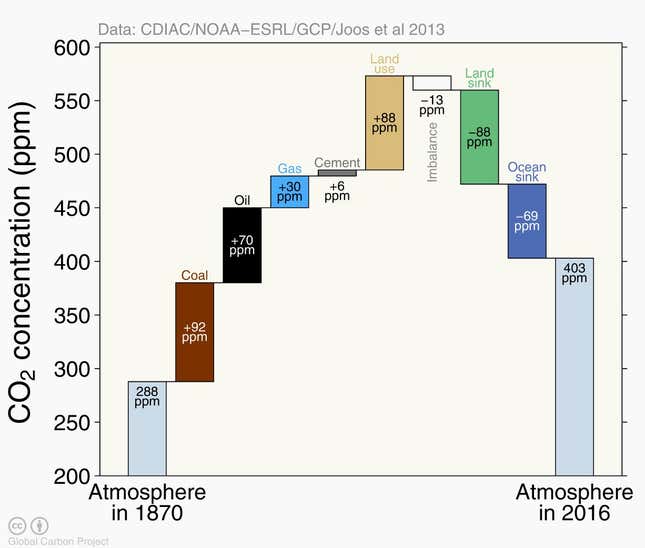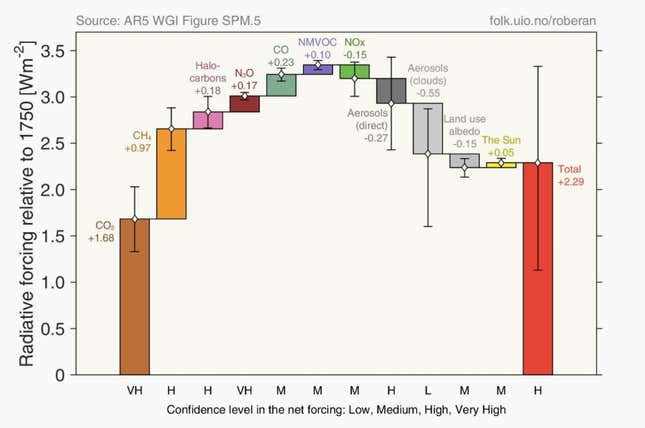If you stare long and hard enough at emissions data, you’ll find many fascinating and important stories. For instance, you likely know that a lot of the carbon dioxide humans emit ends up in the oceans. But do you have any real sense of just how much?
The chart below shows all the sources and sinks of carbon dioxide. For instance, absent any other factors, all the oil burned from 1870 to 2016 added about 70 parts per million (ppm) of carbon dioxide to the atmosphere. During the same time, it turns out, oceans sucked up about 69 ppm of carbon dioxide from the atmosphere.

If I hadn’t looked at that chart, I would never have discovered that, in a way, nearly all the emissions from oil burned since 1870 have ended up in the oceans. That’s remarkable for two reasons. We’ve burned a lot of oil, and thus produced a lot of carbon dioxide. Without the oceans, that carbon dioxide would have otherwise remained in our atmosphere and spent all those years absorbing sun’s heat. On the other hand, it’s still having a large negative impact on the environment: the oceans are acidifying and corals dying.
Let’s try another. You’ve likely heard that methane is many times more potent a greenhouse gas than carbon dioxide. But just how bad is methane’s impact on the environment? Very bad.

The chart shows how much each greenhouse gas contributes to trapping the sun’s radiation. (Where there usually is an X-axis, the chart shows confidence in the corresponding data points.) Carbon dioxide, no surprises, captures the most heat. But methane comes a close second, even though there’s 200 times more carbon dioxide in the atmosphere than there is methane.
Why does all this emissions geekery matter? As the statistician William Edwards Deming said, “If you can’t measure it, you can’t manage it.” And managing greenhouse-gas emissions is essential if we’re to reach zero and save the planet.
This sort of knowledge can have a large impact if it’s communicated effectively. For instance: if you understand how bad methane emissions are for the environment, and also understand that cow manure and pig belching release a lot of methane, you may reconsider how much red meat you eat. (For more emissions geekery, I recommend you follow Glen Peters, the researcher at the Center for International Climate Research whose team produced both the charts above.)
This appeared as part of The Race to Zero Emissions newsletter, where you can follow Quartz’s series on challenges and opportunities of climate action.
